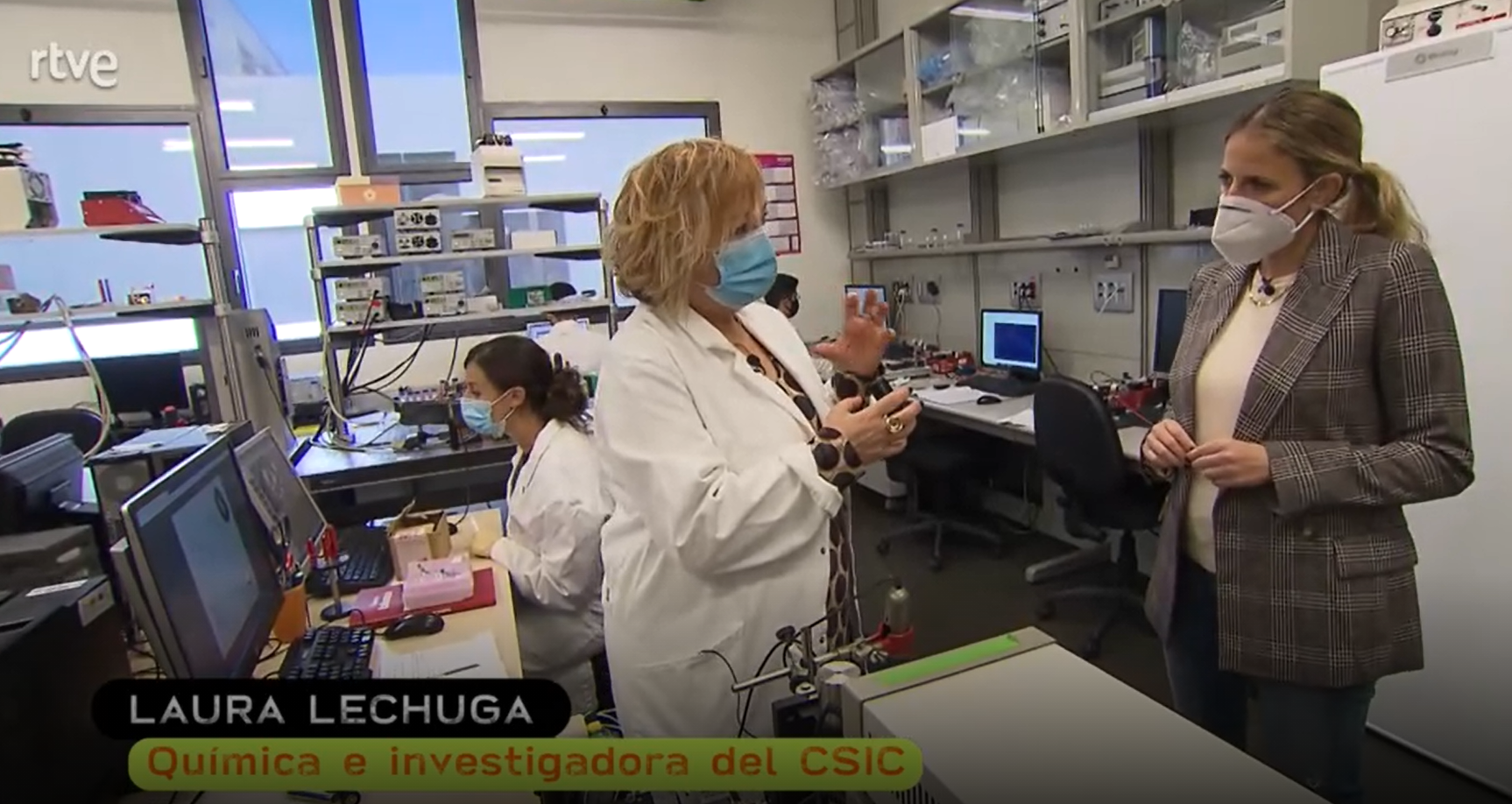Thursday, 10 December 2020
Prof. Laura Lechuga explains her COVID-19 diagnostic project on RTVE’s news programme
The CoNVaT project dedicated to the development of a fast, cheap, portable and reliable test for the diagnostics of COVID-19, led by Prof. Laura Lechuga, head of the ICN2 NanoBiosensors and Bioanalytical Applications group, has been featured in a news report called “Beyond the vaccine” by RTVE. Broadcast on December 9, this episode of the “Comando Actualidad” programme was dedicated to the research about coronavirus (vaccine, therapy and diagnostics) currently under development in Spain.

The COVID-19 pandemic has given impetus worldwide to a great deal of new research aimed at developing effective therapies and a possible vaccine, as well as rapid, cheap and reliable technologies for diagnosing the disease. Research projects in this field carried out in (or led by) Spain are the focus of a report titled “Beyond the vaccine” (Más allá de la vacuna), which was produced by RTVE and emitted on Wednesday 9 within the Comando Actualidad news programme.
Among various research studies and national laboratories, the report features the CoNVaT project, led by Prof. Laura Lechuga, head of the ICN2 NanoBiosensors and Bioanalytical Applications group, as well as the ICN2’s facilities where Prof. Lechuga’s team is working around the clock to design a portable device for the diagnostics of COVID-19, based on advanced photonic biosensors technology. The device under development will be useful not only for the detection of the COVID-19, but possibly also for future coronavirus diseases and, thus, it will allow for monitoring the evolution of the virus and its possible mutations in animal reservoirs. This part of the CoNVaT project will be developed in collaboration with Prof. Jordi Serra-Cobo, epidemiologist from the University of Barcelona, who has been studying bats and their viruses for years. Prof. Serra-Cobo’s research is also presented in this RTVE’s report. The full episode is available on the programme's website.

